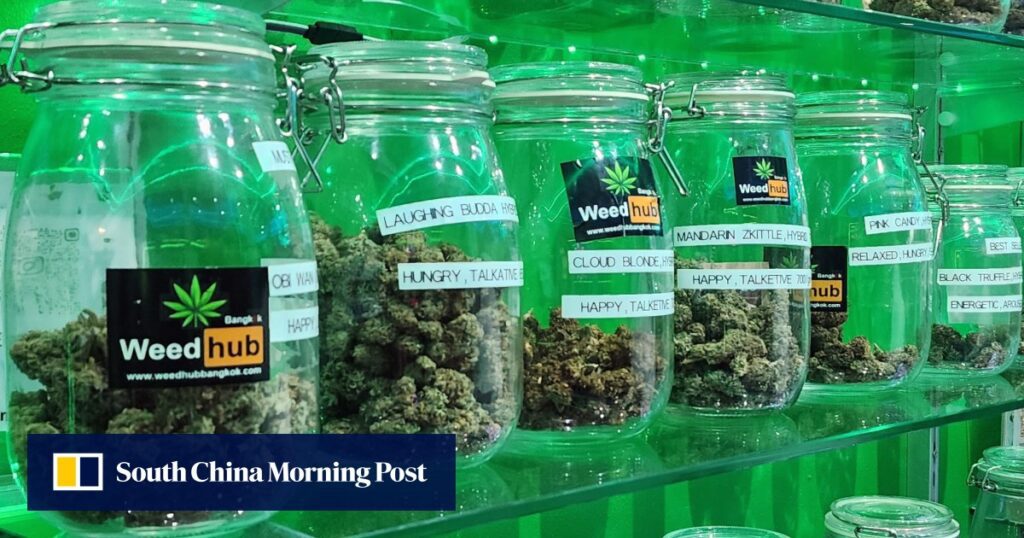The Rise of Cannabis Smuggling from Thailand to the UK
In a striking display of customs enforcement, officials at a Thai port recently showcased a significant seizure of 1.4 tonnes of dried cannabis bricks and pre-rolled joints. These illicit goods were found labeled as “Premium” and adorned with Bob Marley stickers, all primed for export to its primary market: Britain.
Increase in Drug Seizures
Since Thailand became the first Asian nation to decriminalize cannabis two years ago, UK ports and airports have witnessed a significant surge in drug seizures originating from the kingdom. In just the last two weeks, more than 260kg (573lbs) of cannabis has been confiscated from suitcases at UK airports. The passengers arriving from Bangkok included two Malaysians, contributing to a growing list of at least 90 detainees this year at UK borders for cannabis-related offenses.
Organized Crime’s Involvement
The UK’s National Crime Agency (NCA) has raised concerns about the involvement of organized crime groups actively cultivating cannabis in Thailand, as well as in countries like Canada and the United States. These nations allow the legal cultivation of high-quality cannabis, making production significantly cheaper compared to the UK.
- Cost Efficiency: Producing cannabis in Thailand offers a more affordable alternative.
- Profitability: The substantial profit margins enable these groups to offset smuggling costs effectively.
- Minimizing Risks: Smuggling provides a less risky avenue for large operations than managing UK-based grow houses.
Legal Consequences for Smugglers
Despite the allure of quick profits, individuals caught smuggling cannabis — a substance now both plentiful and legal in Thailand — face severe penalties in the UK. The consequences can include imprisonment for up to 14 years for drug trafficking, highlighting the serious legal repercussions of becoming involved in such activities.
The ongoing surge in cannabis smuggling from Thailand to the UK serves as a reminder of the complexities surrounding drug laws and enforcement. As markets continue to evolve, the relationship between countries grappling with cannabis legality and high-demand markets remains a critical area for law enforcement agencies.


